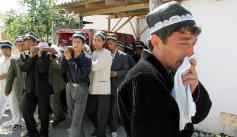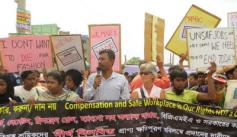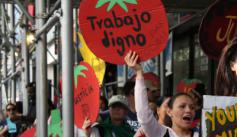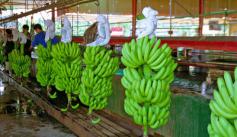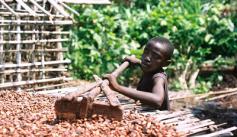Blog
May 13, 2015
The TPP's dirty labor laundry
May 7, 2015
Remembering Rana Plaza
April 24, 2015
Women March for Rights on International Women's Day
March 9, 2015
Toxic, Deadly Tanneries
February 9, 2015
Modern Day Slavery in Mexican Tomato Fields
December 11, 2014
Justice delayed…the long road of the Guatemala CAFTA complaint
December 10, 2014
This Thanksgiving week: act against child slavery in our food system!
November 25, 2014
Pages
Blog archive
- November 2011 (1)
- October 2011 (6)
- September 2011 (6)
- August 2011 (7)
- July 2011 (9)
- June 2011 (11)
- May 2011 (12)
- April 2011 (10)
- March 2011 (9)
- February 2011 (10)
- ‹ previous
- 11 of 17
- next ›
